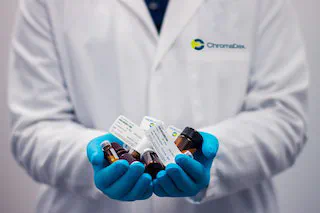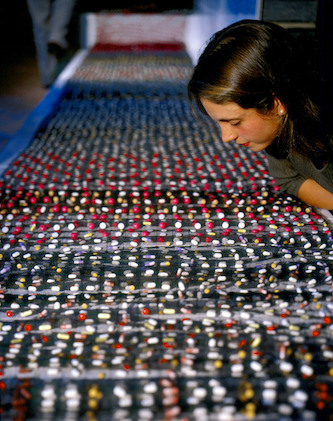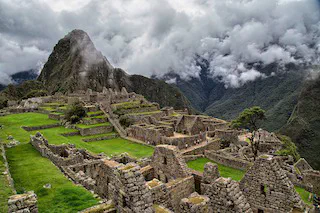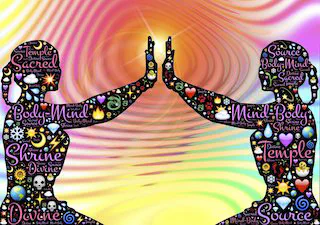
Understanding why you need to invest in your health education
- Matthieu P.J.
- Wellbeing
- June 24, 2020
This article invites you to think about the way you approach medicine and your health in general. Many people have been used to relying on external factors to take care of their health: doctors, pharmaceutical drugs, surgery etc.
This over-reliance on the outside world instead of yourself certainly shows results but it also has its own limits. But not only that, it could keep you away from an important truth: your health concerns YOU. And good health starts with you and your attitude.
Many people—including myself—have been on a journey to reclaim their own health and develop critical thinking as opposed to blindly accepting what has been told to them regarding their conditions and the treatments they should take. We did it not because we are doctors or medical scientists but because, like many other things in life, we discovered that there was another way and a way that worked better for us than the mainstream way. I will show you why investing in your own health eduction is probably one of the best favours you could do yourself.
Table of Contents
Medicine today
The obfuscation of facts caused by statistics
Initially I wanted to mention statistics briefly here but it turned out to be a topic of its own! You can refer to this other article about the usage of statistics in medicine . I explain how something apparently as simple as life expectancy (a key measure of the progress of medicine over the last century) is likely to get misunderstood by the general public.
So my first argument here is that when we hear about statistics proving such and such point of view, we need to be very careful. Because a number alone is meaningless. Too often statistics are mentioned without giving any caveat or explanation of how they are calculated and how they are to be interpreted. That can give the illusion of understanding a topic and having valuable information. But the truth remains hidden.
The dogmatic attitude
Medicine has gone through a revolution during the 20th century and our contemporaries’ health seems superior to anything in the known past. There is a lot of prestige around medical science and a kind of feeling that our progression is constant and uninterrupted. While it’s true that we live on average a lot longer than let’s say 100 years ago, we are far from understanding everything about human health and cures for some deadly diseases still elude medical science.
I see health as holistic: a healthy body and a healthy mind. While we have progressed on the healing of the body, the healing of the mind lags behind. In fact the situation has never been as bad as today compared to recent history. There is a mental health epidemic reported globally. They call it mental health issues or ‘dementia’. The name doesn’t matter. In some western countries dementia is now listed as a leading cause of death and it is incurable. There is a lot of stigma around mental health. People will say they have a cold, but they won’t tell you they suffer from depression. Yet millions suffer from depression. Then there are other epidemics such as cancer. There is still no cure and people die from it every day. In the UK that’s about 100 people a day.
But beyond that—and in a much more concerning manner—I see many core issues with the tenets of modern medicine or medical science and the way the patients (i.e. us, the people) are dealt with.
By the way ‘modern medicine’, also called ‘mainstream medicine’ or ‘science-based medicine’, is only one of the many types of medicines out there. It is also referred to as ‘allopathic medicine’, or ‘allopathy’.
Unless mentioned otherwise, when I say just ‘medicine’ I usually mean ‘modern medicine’.
Medicine is a complex science and has now reached a level in our society where it is all-powerful. What I mean by that is that mainstream medicine has become a sort of RELIGION. Bear with me on the comparison. Just like religion, there is a dogma. Doctors are authority figures. They hold the medical knowledge. But how comprehensive and how valid is that knowledge exactly? When you research a particular topic (which is easy now with the advent of search engines), there are ‘medical studies’ that all seem to contradict each other. Then you will hear today ’that food has been proven to reduce the rate of cancer’ just to read in a few months that a study was just published that tells the exact opposite. Experts may engage in a sort of ‘battle of statistics’ and before you know it your brain starts steaming…
Now that I know it takes a lot of time to truly understand some statistics I am even more cautious.
In the end you may be left even more confused than when you started your research. You will have to pick the version you believe the most. So there seems to be an element of faith.
If I push my comparison further I’d say your doctor is the ‘priest’ of your good health. He refers to his Bible which in the UK would be the British National Formulary (reference book on drugs used by doctors & pharmacists).
Also, could it be that medical science does not understand everything but insists on telling us the contrary? At the core of allopathic medicine is the assumption that every phenomenon can be explained purely on a physical basis. In other words, that there is nothing more than what we can touch and feel. What to say of the placebo effect then? After all, even the pharmaceutical industry acknowledges the reality of the placebo effect; and it is factored in for drug trials. But no, the power of the mind over the body is conveniently ignored most of the time because it does not fit with the rest of the dogma. Because another tenet is that everything needs to be evidenced and proven scientifically. There are medical studies published in journals that form the gospels of modern medicine. If such and such study says something it ought to be right; especially if published in a prestigious medical journal. At least until another study proves the contrary…
ANCESTRAL REMEDIES
Modern medicine can tout the superiority of its science and vast knowledge, but there were already people practicing medicine before we got so excited and proud about our modern science. The healers, the shamans and people known by many other names were taking care of their communities. There were ancestral remedies that our grandparents and before that their grandparents used. They used lots of plants and food to heal themselves. They used what was available out there in nature—they did not run to the pharmacy. They knew it worked. People tried to use those remedies first thing and if it did not improve their condition, then they would go and see a doctor—or whatever equivalent they had back then. Today not only do we tend to do the opposite (see a doctor first thing), but also these ancestral remedies have been marginalised. More generally, lots of alternative therapies have been totally ridiculed by science over the years. They are not seen as canonical by modern medicine. Too often there is supposedly no study that can prove their efficiency.
Incidentally, those studies that call the shots of what is or is not ’efficient’ are funded by big pharmaceutical companies. The same that are manufacturing expensive drugs that are sold to the population and sometimes reimbursed by government healthcare systems (i.e. paid for by the entire population). So let’s not be naive, there are substantial economical interests at play in a multi-billion dollar medical & pharmaceutical industry. There is an obvious collusion between some doctors and pharmaceutical companies. The former run researches funded by the latter. When the funding of medical research is mostly private and controlled by corporations, can we really believe everything is impartial and there is no hidden agenda? The conflicts of interest are blatant yet they need not be disclosed or it does not seem to bother the authorities. This is shocking.
Back to the grandmother’s home remedies. Did you know that plants cannot be patented? Therefore there is no money to be made for pharmaceutical companies. So why would they fund studies that would validate that such natural, cheap and widely available plant can be as efficient—if not more efficient—than a pill they sell for a lot of money? When healthcare is ruled by capitalism—as it is today in many countries–then the financial interests of corporations may come before people’s health… We need to wake up to that truth!
By the way some modern drugs are probably no better than the discredited old days remedies. Some drugs hit the market whereas there is little to no evidence that they are efficient. In fact sometimes they’re barely more efficient than a placebo. But they are patented, they are the property of companies and they are marketed and you see them on TV etc. Obviously you won’t see on TV the grandma remedy that works quite well and costs close to nothing.
NUTRITION
Another oddness is that nutrition is mostly ignored by medicine. I mean, seriously, how can it be denied that what we eat contributes to our overall state of health? Yet, medical students barely learn about nutrition during their studies! 1 That’s an area where we’re totally missing the point. We should be teaching that at school to all our kids! And the future doctors should learn a great deal about it.
Greek physician Hippocrates said around 400 BC “Let food be thy medicine, and let medicine be thy food”. I thought doctors are supposed to take the Hippocratic Oath, so how come this saying got so overlooked over the years?
This refusal of linking clearly our diet and its consequences on our health has allowed the development of a pernicious food industry. One that adds sugar to almost all processed food for example, whereas sugar is a poison for the body, creates inflammation and compromises our immune system. There is an epidemic of diabetes and cardiovascular diseases, should we be surprised then?
So many things are wrong with the way we live today and with our actions having consequences on our health. Yet, we are given the illusion that modern medicine is there to protect us and that the entire world is designed for our well-being. Well, it’s simply not true. And once you awaken to that truth, your journey towards good health will never be the same again.
A systemic fallacy
What we observe today is not a medicine of health. It is a medicine of disease. Let me explain myself. Health is about keeping our body functioning at its best, free of diseases. But that is not what we offer patients.
If you ever go to the British Museum in London, there is a contemporary art installation called ‘Cradle to Grave’. There is a 14-metre long piece of fabric with pills nested inside. That represents the estimated average number of pills prescribed to every person in Britain in their lifetime. Now get ready for that number: 14,000 pills!

When I walked into this exhibition for the first time I was astonished. Was it true? Do we really take that many pills in our modern world? The sad answer was: yes. And that’s just an average, some people take way more than this. I thought to myself: do people even realise it? How can they tolerate that? I knew there was something terribly wrong with that situation. I consider that exhibition one of the most important in the British Museum. Because it tells about our present and it concerns all of us. How did we end up there…?
I think it may simply be that one generation started to forget basic notions about keeping healthy and healing with natural remedies. The next one even more so, etc. Gradually ignorance has spread across generations while an entire industry was growing to address the matter of health. Like so many aberrations in our modern world, it took a bit of time to sink in. But the results were devastating. We’ve forgotten how to take care of our bodies. Many of us think we can eat whatever we want (usually high fat, high sugar, highly processed foods), adopt whatever lifestyle we want (mostly sedentary with little physical exercise) and maybe just take some pills to keep healthy. This approach to good health is a dangerous illusion. What we witness are the consequences of the toxic combination of the economic interests of ‘Big Pharma’, consumerism & an abundance of pills on the market targeting such and such ailment and finally the firm belief—promoted by the entire system—that ‘whatever your health issue is, there is a pill out there to give you a quick fix’. I would summarise and say we have developed a very passive attitude towards our own health.
So the doctrine is: if you have a health issue, here’s the solution—mostly drugs. But that is a reactive medicine, not a preventive & proactive medicine.
Ask yourself:
- What’s your first reaction when you are sick? Is that to consult a doctor by any chance?
- Do you usually visit a doctor when you are healthy?
- What do you do regularly in order to stay healthy?
Let’s face it, doctors are people we meet when we are sick. They are in the illness business, not really the health business when you think about it. Then when you see the doctor, you generally expect him to prescribe you drugs, don’t you? But often drugs do not cure the underlying health condition , they’re alleviating the symptoms. They do NOT treat the root cause. In many cases the drug you’re given will also induce side-effects. Now you may take a 2nd drug to alleviate the side-effect of the first one (think antibiotics that mess up with the bacteria in your gut). And maybe a 3rd drug to balance out the first two etc. We already know it does not end up nicely. Remember that British Museum installation I mentioned?
Now if you have recurrent health issues, you could become addicted to these drugs because you convinced your mind and your body that you need them otherwise you cannot be healthy. You also need to pay for getting them. National health systems subsidise them so eventually everyone contributes to that financial effort. That promotes an entire system.
I am not discrediting our modern medicine for its value because it is tremendous. It saves lives. It has fantastic results for emergencies for example. But for chronic conditions it seems to be often missing the point. Too often people are told they need to take a treatment for the rest of their life. And they go for it…
Let me see my GP
So we took the habit to consult a doctor for whatever health issue we had. We forgot the remedies of our ancestors to heal most of the common and minor day-to-day illnesses. We created public healthcare systems in many western countries after the Second World War to increase health standards, but eventually we saturated them because we surrendered our health to the ‘professionals’. Today many healthcare systems are on the verge of collapsing e.g. in the UK.
Over the last 20 years or so, we have witnessed a continual degradation of healthcare services. I will tell you about my last experience seeing a GP. I went to my local surgery in mid-2019 (I live in the Greater London area) and I immediately noticed new signs on the walls of the waiting room saying something in the lines of “The GP will only spend 10 minutes maximum with you and can only investigate one medical issue at a time. If you have several issues, you will need to book additional appointment(s)”. I walked down the corridor and entered the GP office. He barely looked at me because he was mostly focused on the computer screen where some information needs to be filled in. Neither my blood pressure or any other general indicator of health got tested. We had a brief discussion. The GP dismissed me with a prescription.
I already had mixed feelings about seeing a GP in a surgery but that was the final confirmation I needed. Clearly I felt I cannot rely only on my local GPs anymore because they barely have the time to ‘deal’ with me. Sadly, it seemed I had become a droplet in an ocean of patients to take care of.
I do not doubt those GPs are doing their best. This is a difficult situation for medical personnel. They are overworked and lack proper recognition. They are prisoners of this system as well!
By the way I had another consultation following that visit and that was with a remote GP on a video call. That was actually great: much less stressful and effective. I am a strong believer in the use of modern video communication technologies for upgrading our healthcare approach.
Anyway, many years ago I had already reached my own conclusion about this: if you want to be treated properly, you have to drive things yourself. Do your own research. Ask others what they did in similar situations. Make an effort to solve your health issues by yourself first, and then if it all fails, go and see a doctor.
On the path I also realised that proper medicine should be about keeping you healthy all the time with a good baseline and then if you fall ill, restore your health. That’s very different from getting interested in medicine only conveniently when you are in need. Because staying healthy is really about a conscious effort you need to make in your daily life. About the choices you make: what to eat, what to do with your free time, what amount of physical activity you do and your overall emotional state.
Your base state is being healthy. Any disease mean there’s an imbalance in your body. It’s a dis-ease. It can take a million different forms. Fancy names for such and such conditions only hide one single cause: your body cannot cope anymore, it has become unbalanced. That truth is so powerful. People who catch a disease are people who have weak immune systems. And unfortunately that’s a large share of the population today. If most people had strong immune system, this COVID-19 would have gone unnoticed. Instead we panicked as a collective. Because we do not trust our own bodies to support us, our own immune systems to do the job. We are afraid to get sick.
Taking responsibility for your health
So we live in a strange world. We have literally outsourced our health to an entire industry and we trust these people and their tools to keep us healthy. Today I say ’no’.
MY EXPERIENCE
But back in the days I fell into the ’trap’. I blindly trusted our modern medicine to keep me healthy. And to its credit it has helped me over the years and I am grateful. But my attitude was not right; it was an attitude of being passive and irresponsible. Today I realise it was a lack of common sense.
What I did a few years ago is to document myself extensively and catch up with my lack of ‘health education’. It took years, it took dedication and many trial & errors on my own body. But it was so exciting to finally understand. I was very motivated. After a series of major adjustments mainly on my diet and level of exercise, it became more like fine-tuning. To this day there are still new things I learn; I think this is never-ending. When I look back, I realise it was a journey to reclaim a sense of self-love. My overall well-being has been transformed; in fact my whole life has been transformed. Because for years I had neglected that aspect of my life which is so essential: my body and its health.
YOUR JOURNEY
Like me, you can take ownership of your own health. That does not mean not seeing doctors if you need to; or stopping all your medical treatments overnight. That means understand some basic concepts and re-thinking what being healthy means. The journey starts in your mind with the will to give it a try.
Being healthy is a birthright. The foundation of good health is a strong immune system. And EVERYONE can learn how to build one.
Final thoughts
Your health is probably your most precious asset in this life. Money cannot guarantee you good health despite what you can be led to believe by modern advertisement for such and such ‘miracle cure’.
We have seen there is much debate about the benefits of a particular treatment, drug, therapy, food etc. If you start researching over the internet for answers you’ll give up in front of the endless pages of results. Yes… health is a complex topic because our bodies are amazingly complex! In fact we are far from understanding entirely how they work; that should fill us with humility for our physical body and its intelligence.
What we have witnessed is a globalisation and centralisation of medicine. I even drew a parallel between medicine and religion. International institutions like the World Health Organization (WHO) control the dogma and in light of the recent events with coronavirus, it can be argued if they have the best interest of people at heart. We outsourced our own health to an entire industry ruled by profit instead of our well-being. We have talked about things that are not justified. Asking people to take treatments for life in the case of chronic conditions, instead of investigating the root cause of their problem; ridicule ancestral practices which have helped past generations; and even book patients for unnecessary surgical procedures! 2
In the face of such contradicting information about human health, people are faced with a dilemma. Trust blindly what mainstream medicine recommends and have a quick fix. Or start documenting themselves. It will take time & efforts and requires developing intellectual capacities of investigation and discernment. But in the end, it is well worth the investment. What can be more important than your health? If you want to live a long and prosperous life, you will need to keep your body in good shape. And if you have no idea about how to do it, you cannot properly achieve that.
As long as we constantly expect someone else to find and understand what is wrong with us, the recipe for a healthy life will elude us. I strongly believe that the only way is to take responsibility for our health. That can change your life in ways you have no idea yet. But taking responsibility is always difficult because we need to be honest with ourselves and see our own behaviours, biases and their consequences. The ego does not like it. It takes a massive amount of willpower.
But the good news is: you can learn how to be healthy. Most people are not born healthy or not healthy. We build our health over a lifetime. It is essential to understand how our body works and basic concepts about it. Understand what is good for us and what is not; what will hurt our health and what will promote good health. I came to the conclusion that educating people on how to keep healthy is a necessity to build a better world. So much good could stem from that… Such education should be provided from a young age. For adults, it can only happen if people have the interest or desire and choose to educate themselves.
In this time of COVID-19, already knowing some basics concepts about how to keep healthy and heal yourself clearly pays off! But it’s never too late to start learning. Anytime is a good time for taking responsibility for your health and getting interested in the topic. Eventually you will realise you can do much on your own—and see a doctor only when necessary. A side benefit is that any public health system will perform better if the volume of patients to treat goes down.
I reclaimed control over my health from doctors, and you certainly can too. Look out for my other articles to find more answers; document yourself on the internet; read books. There are so many resources out there that if you are motivated, you will find the answers to your questions. Finally, having a healthy body & mind is the foundation for any type of spiritual work you may choose to follow. You need to start there. This is so fundamental.
BIBLIOGRAPHY & FOOTNOTES
The common misconceptions about life expectancy & why you should approach statistics with caution
Dementia: the greatest health challenge of our time?
https://www.bbc.co.uk/news/health-48094398
‘Cradle to Grave’ at the British Museum in London
https://britishmuseum.tumblr.com/post/142396578532/cradle-to-grave-by-pharmacopoeia
This was mentioned to me by a medical student and you can also read about it here: https://www.bbc.co.uk/news/health-43504125 (BBC article: “We learn nothing about nutrition, claim medical students”) ↩︎
I had researched this topic before, because I know someone who had a prostate surgery with severe after-effects. It turns out that some surgical operations are done on rather benign pathologies without properly informing patients about the risks of the surgery itself (which can greatly outweigh the original pathology…). ↩︎


